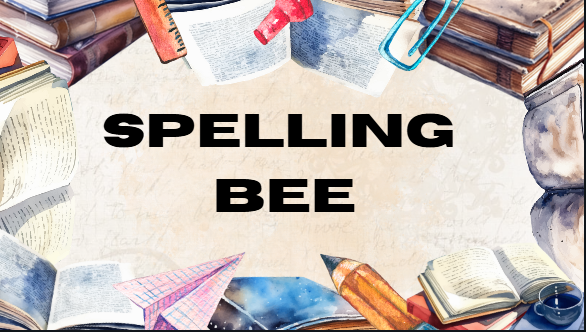Spelling bees have become a cherished tradition, celebrating linguistic prowess and mental acuity. From classrooms to national stages, these contests inspire students to hone their spelling and vocabulary skills. But succeeding in a spelling bee requires more than just memorizing words—it demands strategy, focus, and confidence. In this article, we’ll explore essential tips for mastering spelling bees, tricks for better recall, and a list of commonly asked words to enhance your preparation.
The Importance of Spelling Bees
Spelling bees do more than test your ability to spell—they enhance cognitive development, improve memory, and increase vocabulary. They also build confidence and teach resilience in the face of challenges. Participating in a spelling bee fosters an appreciation for language, opening doors to better communication and writing skills. Whether you’re competing locally or nationally, the benefits of preparing for a spelling bee extend far beyond the stage.
How to Prepare for a Spelling Bee
Preparation is the key to success. Follow these steps to maximize your potential:
-
Build a Strong Vocabulary
Start with the basics. Learn the most frequently used words in English and progress to more complex ones. Use a reputable word list like those from the Scripps National Spelling Bee or Merriam-Webster.
-
Understand Word Origins
Knowing the roots of words can be immensely helpful. Many English words derive from Latin, Greek, or French, and understanding these origins can help you deduce spellings. For example:
- Latin root “scrib” means “to write” (e.g., inscribe, describe).
- Greek root “phobia” means “fear” (e.g., arachnophobia, hydrophobia).
-
Practice Regularly
Daily practice is crucial. Dedicate specific time to reviewing words, practicing pronunciations, and writing them out. Spaced repetition—a technique where you review words at increasing intervals—can help embed them in your memory.
-
Use Mnemonics
Mnemonic devices can simplify complex words. For example:
- To spell “necessary,” remember: “One collar and two sleeves” (one C, two Ss).
- For “separate,” think: “There’s a rat in separate.”
-
Work with a Mentor
A coach, teacher, or parent can be invaluable in guiding your preparation. They can quiz you, provide constructive feedback, and offer encouragement.
-
Simulate Spelling Bee Conditions
Recreate the competition environment to build confidence. Practice standing in front of an audience and answering without hesitation.
Tricks for Remembering Difficult Words
Even seasoned spellers can struggle with tricky words.
-
Break Words into Chunks
Divide long words into smaller parts. For instance:
- “Antidisestablishmentarianism” becomes “anti-dis-establish-ment-arian-ism.”
-
Pay Attention to Pronunciation
Mispronunciations often lead to spelling errors. If unsure, ask for the word’s repetition or its use in a sentence.
-
Learn Commonly Confused Words
Homophones and similar-sounding words are notorious for tripping contestants. Study their differences:
- “Affect” vs. “Effect”
- “Their” vs. “There” vs. “They’re”
-
Visualize the Word
Imagine the word written out in your mind or trace it with your finger. This mental imagery reinforces correct spelling.
Common Spelling Bee Words
Familiarizing yourself with frequently asked words can boost your confidence. Here’s a list of words often featured in spelling bees, ranging from simple to challenging:
Easy Words
- Apple
- Friend
- Garden
- School
- Happy
Intermediate Words
- Challenge
- Knowledge
- Balance
- Decision
- Loyalty
Advanced Words
- Acquiesce
- Connoisseur
- Chrysanthemum
- Ephemeral
- Juxtaposition
Expert-Level Words
- Floccinaucinihilipilification
- Onomatopoeia
- Serendipity
- Scherzando
- Pulchritude
Managing Spelling Bee Anxiety
Even the most prepared participants can feel nervous. Here’s how to stay calm under pressure:
-
Breathe and Relax
Take deep breaths before stepping onto the stage. Controlled breathing reduces stress and sharpens focus.
-
Focus on the Present
Don’t dwell on past mistakes or future challenges.
-
Ask Questions
If you’re unsure, ask for the word’s definition, origin, or usage in a sentence. This buys time and provides valuable context.
-
Visualize Success
Picture yourself spelling words correctly and receiving applause. Positive visualization boosts confidence.
Also Read : Dynamic duos
The Role of Technology in Spelling Bee Prep
Modern tools can streamline preparation. Consider using these resources:
-
Apps and Online Tools
Platforms like Spelling Bee Ninja or Quizlet offer tailored quizzes and flashcards to help you master words.
-
Videos and Tutorials
YouTube channels and educational websites provide tips from past champions and experts.
-
Virtual Spelling Bees
Participate in online spelling bees to gain experience in a competitive setting.
Conclusion
Spelling bees are a wonderful opportunity to celebrate the richness of language. Success comes down to consistent preparation, understanding word roots, and staying calm under pressure. By practicing diligently, using mnemonic tricks, and familiarizing yourself with commonly asked word , you’ll not only excel in the competition but also develop lifelong skills. Remember, every great speller started as a beginner—so stay determined, and enjoy the journey!
With the right mindset and resources, your spelling bee victory might just be a word away.

